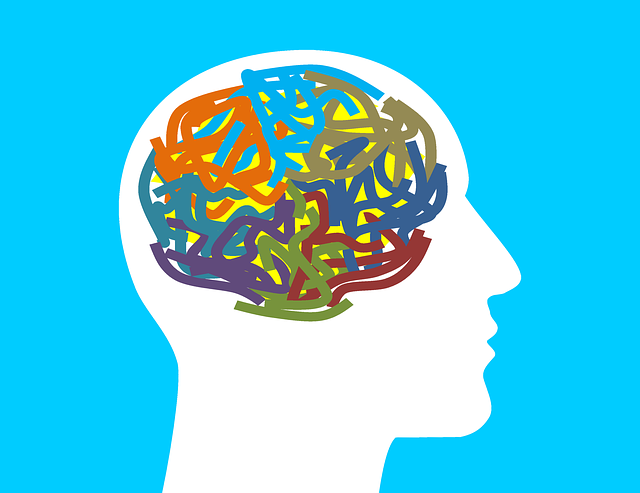Body dysmorphia significantly impacts daily life, but Evolving Minds Counselling offers a specialized, empathetic approach to help individuals manage symptoms and develop healthier relationships with their bodies. Through cognitive-behavioural therapy (CBT), mindfulness practices, and open dialogue in a safe space, their counselling services empower clients to challenge negative thoughts, accept their bodies, and cultivate positive self-images for long-term recovery.
Body dysmorphia, a condition characterized by an intense preoccupation with perceived flaws in one’s appearance, affects countless individuals. This article explores empathetic counselling as a powerful tool for supporting those struggling with dysmorphia. We delve into the mental health perspective of body dysmorphia, highlighting the role of understanding and empathy in treatment. Next, we introduce Evolving Minds Counselling and its unique approaches, followed by strategies for long-term empowerment and recovery.
- Understanding Body Dysmorphia: A Mental Health Perspective
- The Role of Empathetic Counselling in Treating Dysmorphia
- Evolving Minds Counselling: Approaches and Techniques
- Empowering Individuals: Long-term Support for Recovery
Understanding Body Dysmorphia: A Mental Health Perspective
Body dysmorphia is a mental health condition characterized by an intense preoccupation with perceived flaws in one’s appearance. This can include concerns about the size, shape, or texture of various parts of the body, even when there’s no visible deviation from average. It’s not simply about having a desire for aesthetic changes; it’s a persistent and distressing fixation that significantly impacts daily life. This condition often falls under the umbrella of disordered eating and can lead to unhealthy behaviors like excessive exercise, dietary restriction, or, in severe cases, obsessive-compulsive habits related to grooming.
Evolving Minds Counselling recognizes body dysmorphia as a complex issue rooted in various psychological factors. It’s not merely a surface-level concern but reflects deeper emotional and relational challenges. Through empathetic counselling, individuals with dysmorphia can develop coping strategies to manage their symptoms, improve self-esteem, and foster healthier relationships with their bodies and minds. The approach at Evolving Minds aims to create a safe space where clients feel understood, enabling them to embark on a journey of self-discovery and transformation.
The Role of Empathetic Counselling in Treating Dysmorphia
Empathetic counselling plays a pivotal role in addressing body dysmorphia by fostering an environment of understanding and acceptance. This therapeutic approach recognizes that individuals struggling with dysmorphia often experience profound distress due to their distorted perceptions of their bodies. By employing active listening, non-judgmental attitudes, and genuine empathy, counsellors at Evolving Minds can help clients navigate the complex emotional landscape surrounding their condition.
Through empathetic counselling, individuals with body dysmorphia are encouraged to explore and challenge the negative thoughts and beliefs that contribute to their distress. This process facilitates self-acceptance and promotes a healthier relationship with one’s body. By providing a safe space for expression and supporting clients in developing coping strategies, Evolving Minds counselling services offer a transformative journey towards improved mental well-being and a more positive self-image.
Evolving Minds Counselling: Approaches and Techniques
Evolving Minds Counselling offers a unique and effective approach to treating body dysmorphia, a condition that significantly impacts an individual’s self-perception and well-being. Their specialized techniques focus on fostering empathy and understanding, creating a safe space for clients to explore their feelings about their bodies. Through open dialogue, therapists aim to challenge distorted thinking patterns and beliefs associated with dysmorphia.
The process involves various evidence-based methods tailored to each client’s needs. Cognitive-behavioural therapy (CBT) is a cornerstone of their practice, teaching individuals coping strategies to manage obsessions and compulsions related to body image. By combining CBT with mindfulness practices, clients learn to accept their bodies as they are while cultivating a more positive self-image. This holistic approach, combined with the therapist’s empathy, provides a powerful tool to navigate the complexities of dysmorphia, ultimately empowering individuals on their journey to self-acceptance.
Empowering Individuals: Long-term Support for Recovery
Empowering individuals with body dysmorphia is key to their long-term recovery and well-being. Evolving Minds Counselling offers a nurturing environment where clients feel heard, validated, and supported in their journey towards self-acceptance. Through empathetic counselling, individuals can develop coping strategies that challenge negative thought patterns associated with dysmorphia. This process equips them with the tools to navigate triggers, manage anxiety, and foster healthier relationships with their bodies over time.
The supportive nature of our counselling sessions encourages clients to embrace personal growth and self-discovery. By providing a safe space for expression, individuals can explore the underlying causes of their dysmorphia, gain insights into their conditions, and learn effective ways to promote positive body image. This holistic approach not only addresses symptoms but also empowers people with the knowledge and skills necessary to maintain long-lasting recovery.
Empathetic counselling, as offered by practices like Evolving Minds Counselling, plays a pivotal role in supporting individuals struggling with body dysmorphia. By fostering understanding and compassion, this approach empowers people to challenge distorted perceptions of self and embrace a more positive relationship with their bodies. Through long-term support, individuals can achieve lasting recovery and reclaim their well-being. Evolving Minds Counselling’s techniques prove invaluable in navigating the complexities of dysmorphia, offering hope and healing for those affected.



